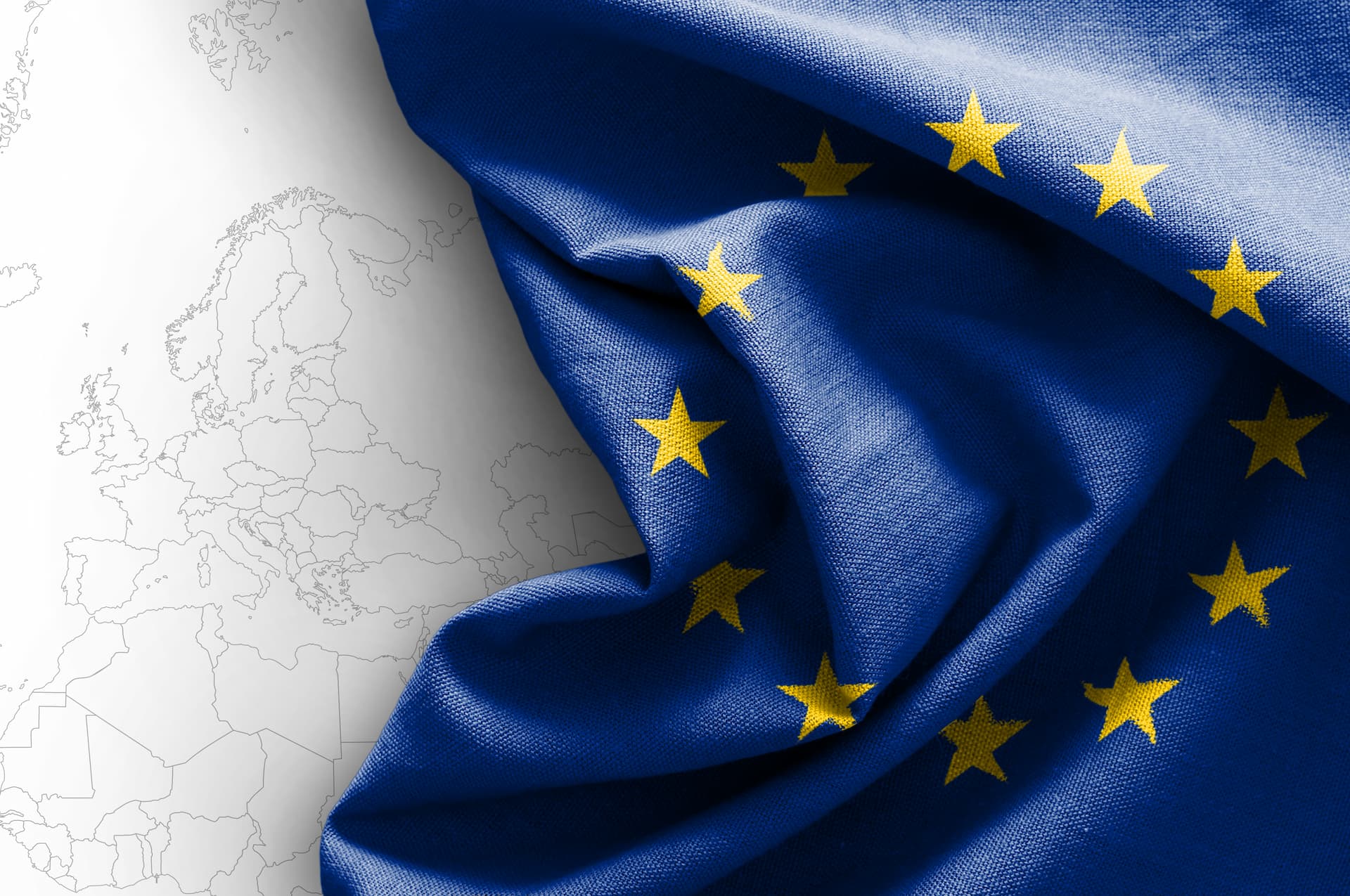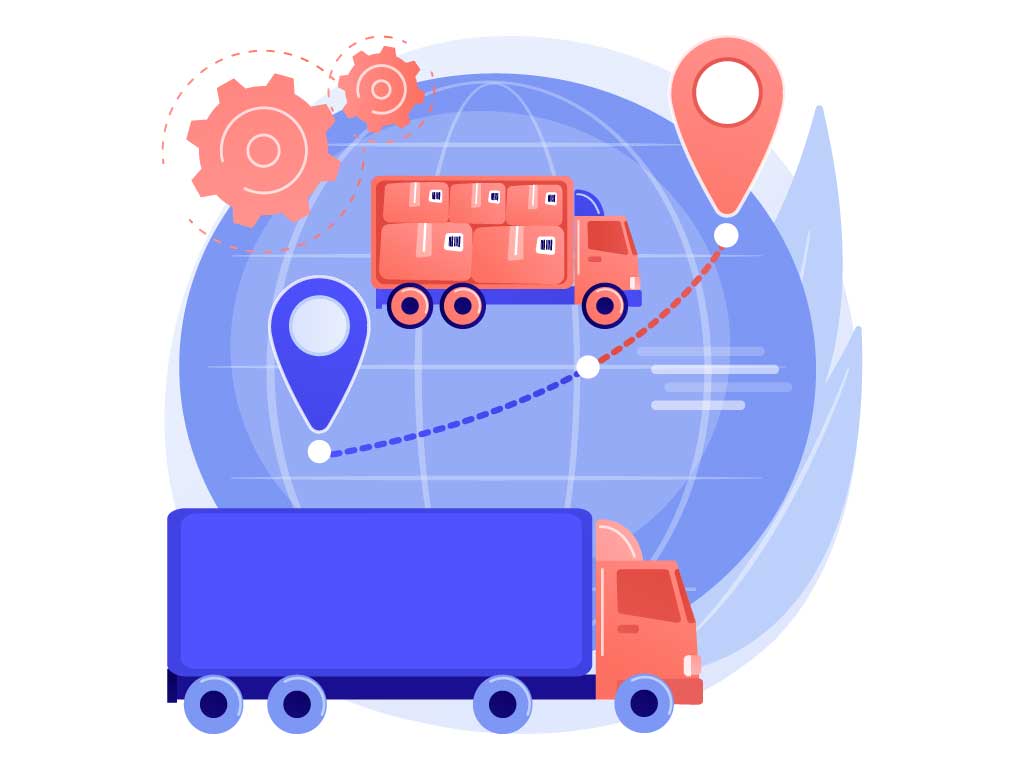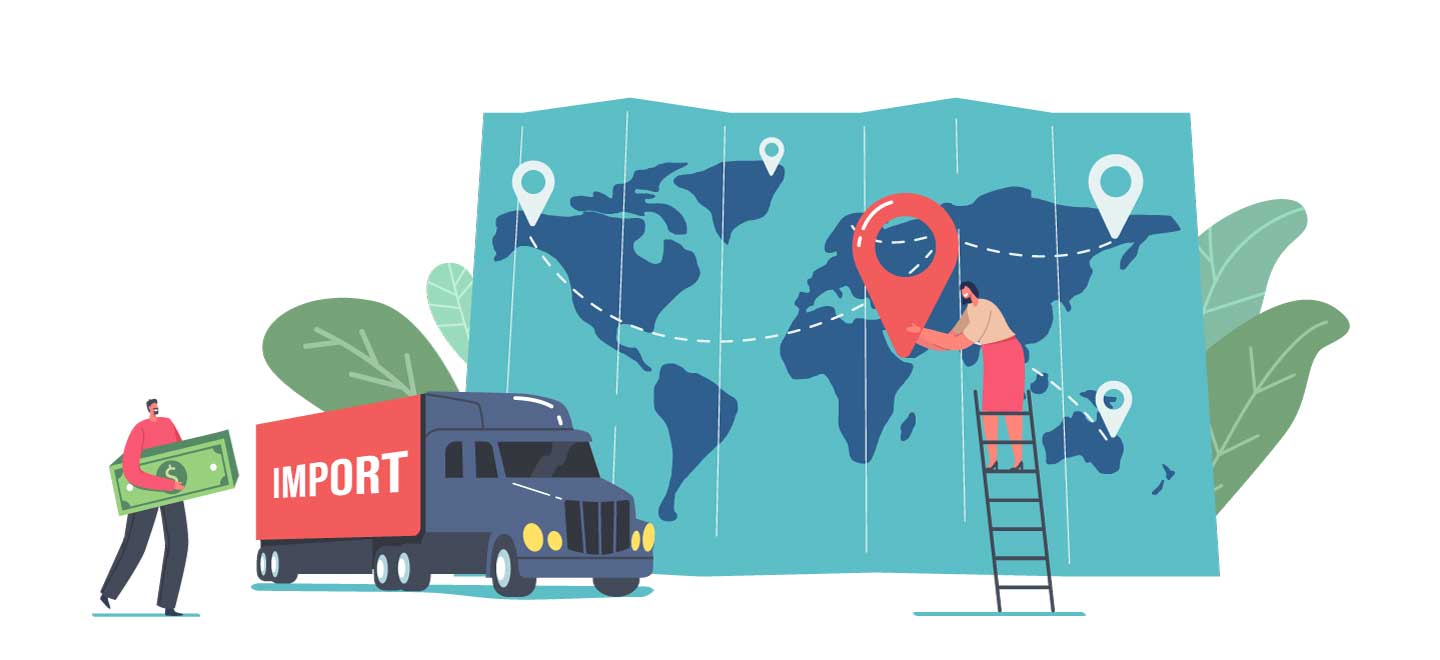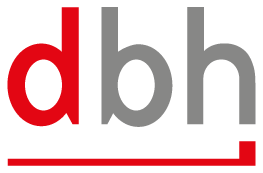The new supply chain law
What’s behind all this?
The new supply chain law will require large companies to ensure that all suppliers and partners respect all human rights. From 2023 onwards, companies will be subject to a comprehensive due diligence obligation covering the entire supply chain. Since the regulations based on voluntary action have not yet been fully effective, the law that has now been passed by the Bundestag is an important basis. In this article, we show what it is specifically about and who the Supply Chain Act affects.

More far-reaching than the German Supply Chain Act:
The new EU supply chain directive
After the German legislature passed the Supply Chain Act, the European Commission is following suit. In February, the Commission’s draft EU Directive on corporate due diligence in the area of sustainability was published – also known as the “EU Supply Chain Directive” (EU 2019/1937).
Why was the new legal framework needed?
Human rights are regularly violated, especially in the context of international supply chains, which are already common due to increasing globalisation. Common forms of these violations include child labour, lack of labour protection, lack of labour rights, active exploitation or discrimination. For example, many companies earn money from the poverty of other people, which is to be purposefully avoided with the help of new guiding principles and approaches.

Already in 2016, it was examined to what extent companies also provide for a review of their supply chain on a voluntary basis. While the declared target was 50%, only about 400 of the requested 3,000 enterprises responded to a survey. 20% of the 400 companies met the requirements. In a second round in 2020, the number of responses increased, but the requirements were only met by 17% of the farms.
In addition to social responsibility for other people, the law also focuses on ecological aspects. Violations such as illegal logging, air and water pollution, and pesticide emissions should be prohibited under the Supply Chain Act and penalties imposed for violations. In this way, the current draft law aims to reduce the disadvantages that currently exist for companies that are committed to a fair and sustainable supply chain. Sustainable investments are therefore more worthwhile again.
The road to the Supply Chain Act
In February 2021, a draft bill for a German Due Diligence Act (or Supply Chain Due Diligence Act) was presented by the Federal Ministries of Labor and Social Affairs (BMAS), Economic Affairs and Energy (BMWi) and Economic Cooperation and Development (BMZ ). The aim of the draft was to oblige German companies to respect human rights in their supply and value chain in the future. The Federal Cabinet approved the draft bill on March 04, 2021, and the Bundestag passed the law on June 11, 2021. The Federal Council also passed the Supply Chain Sourcing Act (LKSG or Supply Chain Act) in its session on June 25, 2021. Thus, the law will come into force in 2023.
The Supply Chain Act regulates these areas
In order to provide an effective framework, the legal framework relates to the entire supply chain. Thus, the companies are obliged to implement the requirements in their own business area, but also in the environment of their direct suppliers. If the company in question has knowledge of human rights violations at indirect suppliers, these factors must also be included. This ensures that fair and equal standards are created globally.
However, nothing will change for companies until 2023. In 2023, the new supply chain law will then apply to all businesses with more than 3,000 employees. In Germany, this currently applies to around 600 companies. From 2024, the law will automatically be extended to all companies with more than 1,000 employees. This would mean that there are already 2,900 companies, which means that a large proportion of companies will still not be inspected.

Upcoming due diligence requirements for various human rights
In order to cover the scope of the draft law as broadly as possible, numerous due diligence obligations are listed in connection with the protection of human rights. Specifically, the law refers to all human rights risks that are reasonably likely to be violated. The following areas are distinguished in detail at this point:
- Freedom from forced labour and slavery
- Protection of children and avoidance of child labour
- Integrity of life and health
- Prohibition to disregard occupational health and safety
- Freedom of association and the right to collective bargaining
- Prohibition of unequal treatment and discrimination
- Prohibition of land, water and forest encroachment
- Prohibition of the withholding of a fair wage
- Compliance with environmental and ecological obligations
Particularly due to increasing civil society pressure, demands that had existed for many years became a concrete law. While numerous business associations wanted to avoid the introduction of a concrete law on the supply chain, the draft law was passed by the European Parliament with a large majority on 10 March 2021. In the meantime, the Federal Government has also presented a draft of the law for Germany.
The effects of the law for German companies
For German companies, the Supply Chain Act provides for the implementation of new due diligence requirements that go beyond existing reporting obligations. Although no civil liability provisions are introduced under the Supply Chain Act, fines for violations are certainly possible. The following measures must therefore be implemented:
Your title
Your content goes here. Edit or remove this text inline or in the module content settings. You can also style every aspect of this content in the module Design settings and even apply custom CSS to this text in the module Advanced settings.
Policy Statement
Within the framework of the Declaration of Principles, companies indicate with their Guiding Principles that respect for human rights is a priority and is constantly monitored.
Risk analysis
Risk analysis is used to develop new procedures for identifying adverse impacts that can be related to the human rights in question.
Risk management
Through risk management, companies decide which measures are reasonable for the company and how negative effects can be avoided.
Reporting
Export controls as well as environmental standards and social due diligence are comprehensively documented on the basis of their impact and clarified through reporting.
Complaints mechanism
In the event of possible violations of human rights, as well as in the event of related suspicions, companies must introduce a complaints mechanism that is universally accessible.
This is how the implementation is planned on site in the company
As mentioned above, the new due diligence requirements are to be implemented comprehensively on the basis of the measures presented. In the event of a violation at the direct supplier or in the own company, appropriate remedial action must be taken immediately. The focus of the Supply Chain Act is not on punishing or sanctioning companies, but on preventing human rights abuses such as child labor.
To this end, the existing compliance organization is to be expanded to include aspects of human rights compliance and sustainability. In addition, there is the analysis of risks, which does not lose sight of economic aspects for the company. Training for suppliers, a corresponding code of conduct, uniform standards and regular audits of the entire supply chain are also among the central tasks.
Complete transparency? Not for all parts of the supply chain
Both the sanctioning of human rights violations and the environmental standards have so far been criticised from many sides. For example, the new supply chain law is not broad enough, as it does not affect a large number of companies in Germany. Only for large companies with initially more than 3,000 employees and then from 2024 onwards with 1,000 employees will the law have an effect. In between, however, there are many other supply chains that have not been optimized.
Whether the law will be further tightened by opposition pressure remains to be seen. The concrete interpretation of the draft law is initially the responsibility of the Federal Government until the Bundestag can pass the final version of the law. However, aspects such as the extension of export controls and the introduction of concrete measures to prevent human rights violations such as child labour are already prescribed in the European framework. So what’s clear is that the Supply Chain Act is coming from 2023 and big businesses can expect a lot of work.
SMEs are not subject to the Supply Chain Duty of Care Act, but may still come into contact with the law
An SME may come into contact with the requirements of the Act if it provides services or products to another company that is itself subject to the LkSG obligations. In this case, the SME is considered a direct supplier of the obligated company under the LkSG. The obligated company must include direct suppliers where it suspects a risk in its specific risk analysis and, if necessary, in preventive and remedial measures and in the establishment of its complaints procedure.
BAFA therefore published documents on 29.06.2023 to help affected SMEs:
The FAQ catalog and the summary of the handout “Cooperation in the supply chain between obligated companies and their suppliers” provide SMEs with valuable assistance in the event that they are confronted with the requirements in the context of the LkSG. The papers show, among other things, where cooperation is enshrined in the law and what obligated companies may not ask their suppliers to do under the LkSG.
BAFA is also providing information with practical examples and further recommendations for constructive cooperation between obligated companies and their suppliers.
Effective protection against medical and environmental hazards
While at first glance the new supply chain law clearly creates more fairness in the global labour market, it creates a high reputational risk for many companies. It is therefore crucial to ensure implementation within the period of around 18 months and to optimise one’s own supply chain accordingly. It remains to be seen to what extent further adjustments will be made to the law. However, the specific framework will not change, which means that the new due diligence requirements for people and the environment will have to be implemented from 2023.
Supply chain
Due Diligence Act FAQ
Important questions about the new law
What happens in the event of violations of the Supply Chain Act?
The entrepreneurial due diligence obligations are controlled by the Federal Office of Economics and Export Control (BAFA). In concrete terms, infringements can result in substantial fines or even exclusion from public tenders. However, due to the lack of liability for human rights violations abroad, sanctioning on the ground will not be easy.
Why are infringements abroad in the foreground?
In the case of violations abroad, the German legal system has so far hardly been in a position to react to violations and to punish them in a court of law. In this way, auditing of the supply chain abroad has not been obligatory up to now, which means that people and the environment in the respective country of production have not been protected either. For this reason, the new supply chain law is intended to make improvements abroad.
Does the Supply Chain Act also affect suppliers?
Direct suppliers are also scrutinised by the responsible company and checked against their due diligence obligations. Indirect suppliers, on the other hand, are only looked at more closely when infringements come to light or are reported. Thus, although the law affects suppliers, it primarily considers the direct partners.
How can the law regulate conditions abroad?
In principle, each country is responsible for its own local labour laws and regulations. However, due to financial constraints, there is enormous pressure on poor countries in the context of globalisation, and human rights suffer as a result. Legal frameworks and standards are to ensure greater equity in this respect.
Why does the law not apply to all companies?
One of the central arguments to this question is the complexity of implementation and control. While companies with more than 1,000 employees have the necessary resources, smaller companies can hardly implement this efficiently, even in the short time available. The control of the new obligations and measures could therefore also only be carried out on a random basis.
Do other countries have supply chain laws?
Legal framework conditions for the own supply chain do not only exist in Germany. The European Parliament has also already addressed the issue and developed guidelines. To combat child labour, there is already a law in the Netherlands since 2019. France, on the other hand, has been relying on a law on new due diligence obligations since 2017 and is promoting civil consequences.


